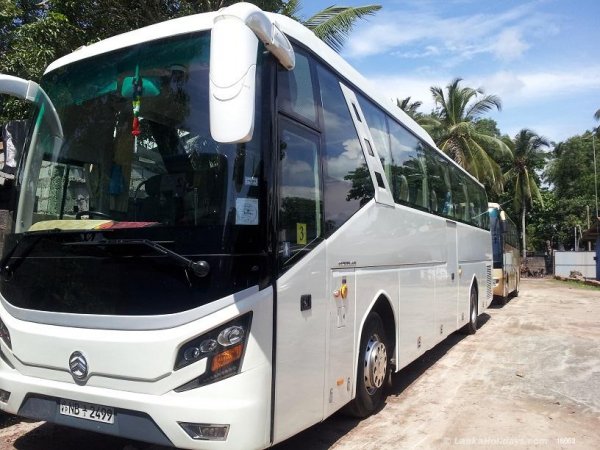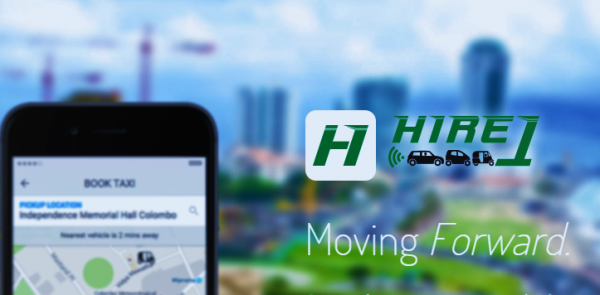
All of Tim Fernando’s life’s journeys brought him to Esplorio. The travel app works in the background, syncing your photos and social media posts, organising everything based on location. The result is a travel diary that you really don’t have to do much to create. Everything is, by default, private, but you can share stuff too, if you like.
Esplorio was developed at the University of Oxford’s technology startup incubator, starting November 2011. Tim and his co-founders have since successfully raised seed funds from a number of angel investors. These include Startup Funding Club, the University of Oxford, and the European Space Agency Business Incubator. Esplorio also went through the Hangar51 incubation programme with IAG and L Marks.
They are seeing “exponential growth,” Tim says, adding that “Esplorio’s concept has evolved a lot since the early days.”
Your first hunch is going to be wrong. Quickly move on to the next.

Esplorio at Hangar 51 earlier this year (L-R): Essa Salaut, CMO; Tim Fernando, CEO; Son “Sean” Pham, CTO.
What Tim outlines is a metamorphosis of the company’s main product offering, similar to what Replantable went through.
Tim spent some of his childhood in Sri Lanka, where his extended family still lives. He still visits at least once a year to see them, and to make new connections. On one trip with his then fiancé, Tim planned to surprise her with a trip to a turtle hatchery. He knew he had saved the location information from a previous visit somewhere online, but just couldn’t find it. The “location geek” in him was mortified at the thought of asking for directions. Esplorio was born.
The prototype was a data storage app that worked on a desktop platform. The team moved fast into an iOS app for phones and tablet. They focused sharply on getting the app to work without data (to eliminate roaming charges) and using very little battery power.
They didn’t have much information on their market when they launched in 2012, so the product’s aims kept changing. The changes were not easy to make because the team was small and the application was technically complex. But this wasn’t the hardest thing about modifying the product.
“Realising your assumptions were wrong is not a pleasant process,” Tim admits.
Esplorio didn’t let this get in the way. While startups usually measure cycles in months and quarters, they measured theirs in weeks. Esplorio believes that their ability to adapt and keep innovating is one reason why investors find them attractive.
Understand the common denominator: People.

Esplorio records your movements in the background, organising images and social media posts into neat little “travel diaries” that you can share with your friends and family, or just save for later.
Tim took his first job before University, as a part-time sales assistant at a camera shop. Encountering hundreds of customers a day taught him valuable lessons.
“Deal with people as individuals, noticing the nuances in their needs,” he says. “Be empathetic, even when their background or point of view may differ from [your] own.”
Years later, these principles still prove useful at Esplorio, driving their product.
Later, working on geo-tech projects at the University of Oxford, Tim learnt another valuable lesson. This time, it was about how the structure and culture of a company can determine its strength or weakness.
“No two people are alike, everyone has their own wants, desires, skills and expectations,” he tells us. “It’s naive to blindly apply a process because it is an academically prescribed methodology. What works for one set of people has no guarantee that it will work as efficiently for another.”
In other words, not only do we need to adapt and change the product to fit the market ‒ we also need to make sure our leadership is suited to the company.
Do what you love.
For many of us, travel is one of the most exciting, thought-provoking and longed-for activities in our lives – Tim Fernando
Tim wrote his first “novel” at age seven, as an assignment for school. It was about travelling to Sri Lanka. Soon after, he set up his first business, selling paper aeroplanes to fellow ten-year-olds. That didn’t go as well as planned, but Tim learnt this from his childhood ambitions: that travel is very close to his heart, and that he wanted to build his own business.
And so he built Esplorio.
Note: This article is part of the Sparklers Series by crowdisland.lk that focuses on Sri Lankan entrepreneurs who have made a global impact with their ventures outside Sri Lanka. The series looks at the real-life ups and downs of their entrepreneurial journey, and the particular challenges they faced building startups in other parts of the world.

Featured image credit: Esplorio/Son Pham

.jpg?w=600)





